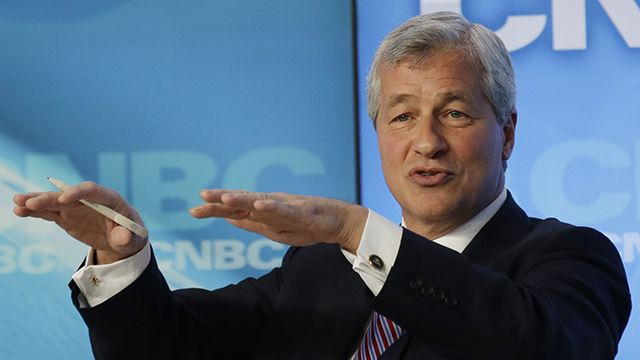
Earlier this month, the Senate Permanent Subcommittee on Investigations issued its report on the JPMorgan Chase “London Whale” debacle and subsequent cover-up of $6.2 billion in derivatives trading losses. Subcommittee Chairman Carl Levin of Michigan pointed a finger not only at the bank but also said that regulators — notably, the Office of the Comptroller of the Currency — fell down on the job.”
Last week, former Federal Deposit Insurance Corporation chair Sheila Bair told Bill, “I think it underscores how even in banks that are viewed as very well-managed, there can be major management breakdowns. These actively traded derivatives can generate very, very large losses in a very short period of time [because of] how volatile they are. I think this is all problematic and should inform some future regulatory choices.”
But it seems some members of the House Agriculture Committee aren’t paying much attention to their colleagues in the Senate. They have brought seven bills to the House floor that will weaken federal regulation of derivatives trading. The bills take aim at Title VII of the Dodd-Frank bank reform act — even though Dodd-Frank has not been fully implemented yet.
Why is a farming committee concerned with derivatives? As David Dayen reports in Salon, since the mid-19th century “farmers used derivatives to achieve stability over future prices.” Although derivatives have evolved since the 1850s, futures traders still use them for commodities such as corn and cotton.
Over the weekend, Mike Konczal, a fellow at the Roosevelt Institute, wrote about the bills – that after the current recess will proceed to a floor vote — for Wonkblog.
There’s a reason why Warren Buffett said, “Derivatives are financial weapons of mass destruction, carrying dangers that, while now latent, are potentially lethal.” And why Bill Clinton said he was wrong to avoid regulating derivatives when he had the chance. These financial instruments played a central role in the financial crisis, culminating with the collapse and bailout of AIG. …
Since Dodd-Frank, there’s been an extensive amount of debate about the new rules for derivatives, which range from collateral to price transparency. But there has also been a counter-debate about who has to follow the new rules. Those who fall under “end-user exemptions” are largely able to forgo following the Dodd-Frank rules, and the easiest way to understand the bills passed out of the Agriculture Committee is to note that they seek to expand the scope of those exemptions.
Read more about the bills at Wonkblog.

